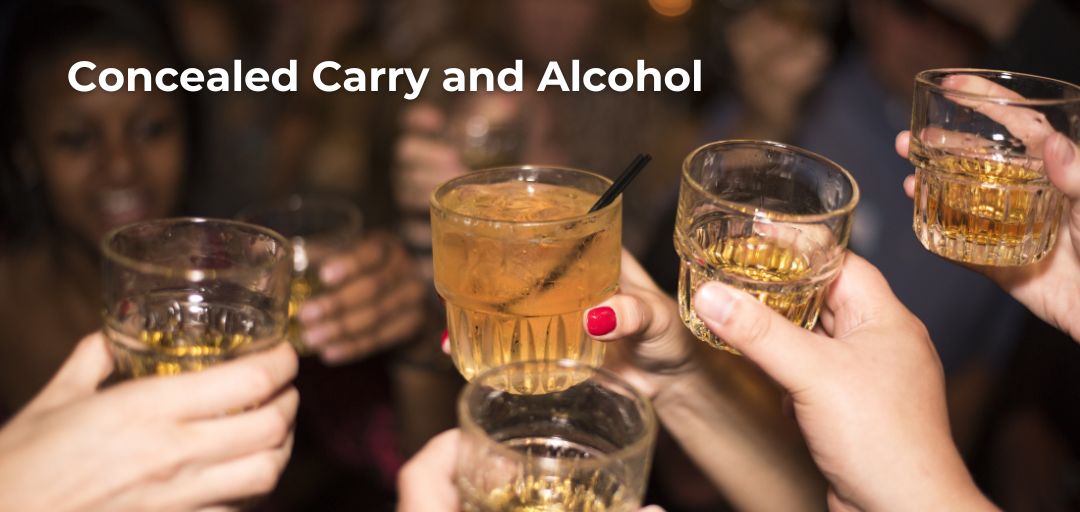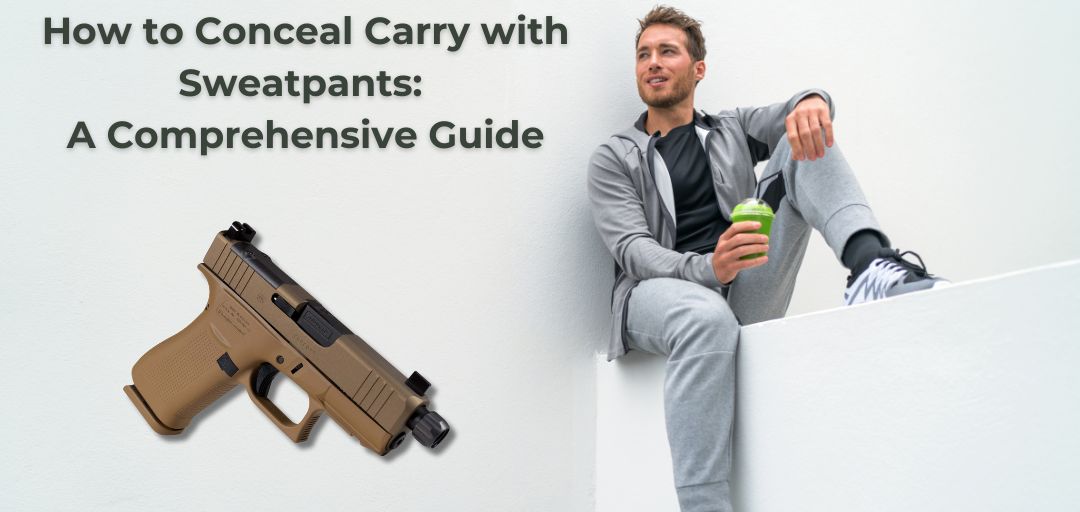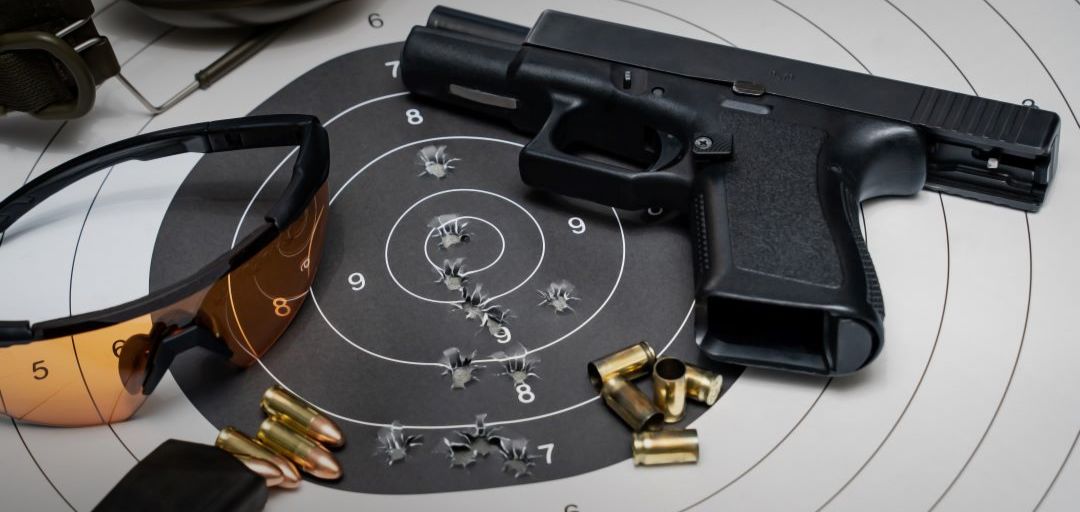Concealed carry is both a privilege and a responsibility, requiring a level of vigilance and discipline that extends to all aspects of daily life. One of the most debated topics among concealed carriers is the intersection of firearms and alcohol. Can you drink while carrying? Should you? What are the legal, safety, and ethical implications?
In this detailed guide, we’ll explore the complexities of concealed carry and alcohol, covering legal considerations, safety risks, personal responsibility, and best practices to ensure you stay compliant and safe.
The Legal Landscape: Concealed Carry and Alcohol Laws
Laws regarding concealed carry and alcohol vary widely across the United States. While some states outright prohibit carrying a firearm when consuming alcohol, others allow it with strict conditions. Understanding the legal framework is critical to avoid costly mistakes or endangering others.
State-by-State Overview
-
Prohibited States:
Many states prohibit concealed carriers from consuming alcohol entirely while carrying. For example:- North Carolina: It is illegal to carry a concealed handgun while consuming alcohol or with any alcohol in your system. Learn more about this law in North Carolina’s concealed carry statutes.
- Illinois: Firearms are banned in establishments where more than 50% of sales come from alcohol.
-
Permitted with Restrictions:
Some states allow concealed carry in places that serve alcohol, provided you don’t drink. For example:- Texas: You can carry in a bar or restaurant that serves alcohol unless it is posted as a gun-free zone, but drinking while carrying is strictly prohibited.
- Tennessee: Similar laws apply, but the carrier must abstain from consuming any alcohol.
-
Gray Areas:
A few states leave this decision to the discretion of the concealed carry permit holder, relying on "common sense" and no explicit laws.
For a detailed look at state-by-state concealed carry and alcohol laws, check out the USCCA’s guide.
Safety Risks: Alcohol and Firearms Don’t Mix
Carrying a firearm is a significant responsibility that demands clear judgment, sharp reflexes, and situational awareness—qualities that are compromised under the influence of alcohol.
Effects of Alcohol on Judgment and Coordination
-
Impaired Judgment:
Alcohol lowers inhibitions, which may lead to poor decision-making in high-stress or confrontational situations. -
Decreased Motor Skills:
Handling a firearm requires precision and coordination, both of which are negatively affected by alcohol. -
Slower Reaction Times:
In a self-defense scenario, the ability to assess and respond quickly can mean the difference between life and death. Alcohol consumption slows reaction times, making it harder to make split-second decisions.
Accidental Discharges and Negligence
The combination of impaired motor skills and reduced judgment significantly increases the risk of accidental discharges or negligent firearm use.
Ethical and Moral Considerations
Even if state laws allow carrying and consuming alcohol, the ethical question remains: should you?
The Ethical Responsibility of Concealed Carriers
As a concealed carrier, you are seen as a protector of yourself and those around you. Mixing alcohol with this responsibility introduces unnecessary risks, undermining the core purpose of carrying a firearm.
Public Perception Matters
Incidents involving alcohol and firearms can lead to negative public perception of gun owners. This impacts not only the individual but the broader concealed carry community.
Practical Scenarios: How to Navigate Alcohol and Concealed Carry
Scenario 1: Dining Out at a Restaurant
- What to Do: If you plan to dine at a restaurant that serves alcohol, avoid drinking altogether.
- Why: Most states allow concealed carry in such establishments as long as you abstain from consuming alcohol.
Scenario 2: Attending a Party or Social Gathering
- What to Do: If alcohol will be present, leave your firearm secured in a locked container at home or in your vehicle (if legally permitted).
- Why: This eliminates the risk of impaired judgment or handling of the firearm.
Scenario 3: Traveling Across State Lines
- What to Do: Research the concealed carry laws of the states you’ll be visiting, particularly regarding alcohol consumption.
- Why: Laws vary widely, and ignorance can result in fines, loss of your permit, or criminal charges.
Personal Responsibility: Best Practices for Concealed Carry and Alcohol
-
Abstain Completely While Carrying
The most responsible choice is to avoid alcohol entirely when carrying a firearm. -
Plan Ahead
If you anticipate consuming alcohol, leave your firearm securely stored. -
Stay Educated
Laws change frequently. Regularly review state and local laws regarding firearms and alcohol. -
Secure Your Firearm Legally
If you need to remove your firearm, ensure it’s secured in a locked container or safe that complies with legal storage requirements.
Tools and Resources to Stay Safe
GunZees: Enhancing Concealed Carry Comfort and Safety
GunZees offers innovative products to improve your concealed carry experience, including comfort-enhancing solutions that ensure your firearm stays securely in place. Explore our full product lineup.
Related Articles on the GunZee Blog
- Concealed Carry in Public Settings: Everything You Need to Know
- Developing a Concealed Carry Mindset
External Resources
- Alcohol’s Effects on Judgment and Reaction Time (National Institute on Alcohol Abuse and Alcoholism)
- USCCA's Guide to Alcohol and Concealed Carry
Frequently Asked Questions
Can I carry a firearm in a bar?
It depends on your state. Some states explicitly ban firearms in establishments where alcohol is the primary revenue source, while others allow it if you don’t consume alcohol.
What happens if I’m caught carrying while intoxicated?
Penalties range from fines and suspension of your concealed carry permit to criminal charges, depending on your state’s laws.
What are the alternatives if I plan to drink?
- Leave your firearm at home in a secure, locked container.
- Use a locked storage solution in your vehicle if permitted by law.
Final Thoughts: A Matter of Discipline and Responsibility
Carrying a concealed firearm is a serious commitment that extends beyond physical safety to ethical and legal responsibilities. While state laws vary on the issue of alcohol and concealed carry, the best practice is clear: avoid mixing the two.
By staying informed, making responsible choices, and planning ahead, you can uphold the integrity of the concealed carry community while ensuring your safety and the safety of those around you.
For more concealed carry tips, legal insights, and product recommendations, explore the GunZee Blog.



